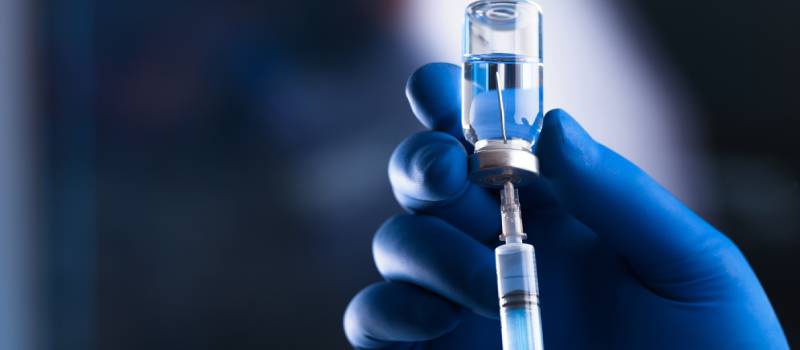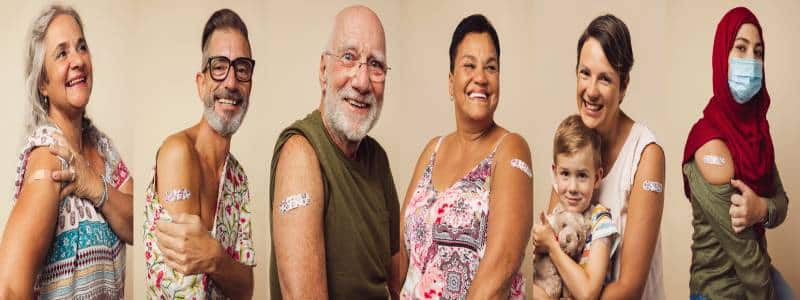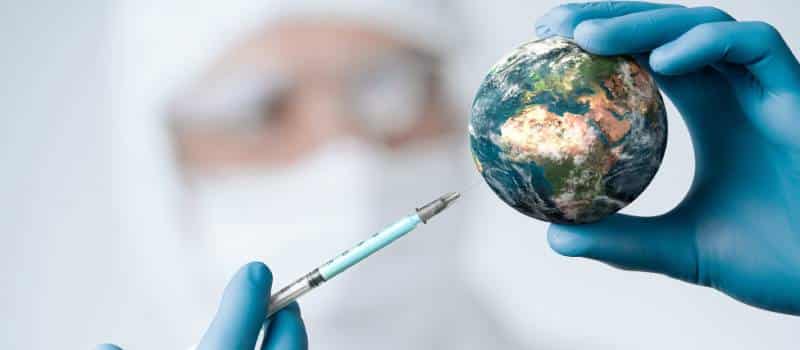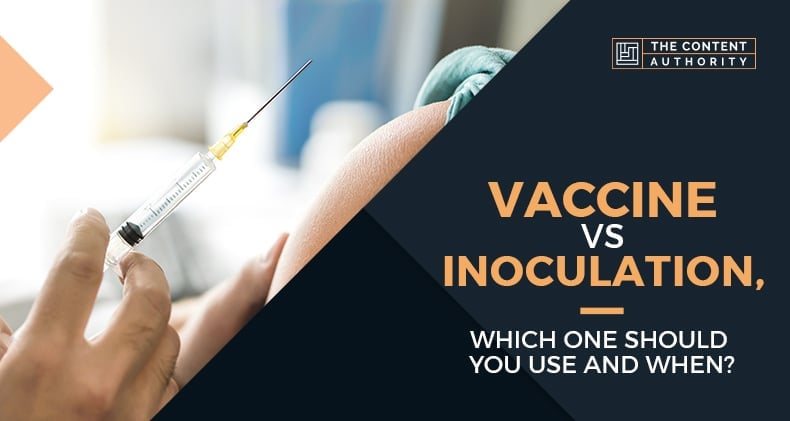Vaccines and Inoculation are vital because they activate our immune system without being sick or having any symptoms.
A vaccine is a medical product designed to help fight so many illnesses, the most recent being COVID-19. Inoculation creates an immune system in our body. To help us with the disease, which goes directly to our body.
What Is A Vaccine?
A vaccine is the simplest, safer, and more effective procedure to protect everyone against terrible diseases; before these diseases are contaminated with them.
The vaccine uses your immune system defense. Vaccines refer to create a resistance barrier to more specific illnesses, such as diphtheria. Most importantly, this will make your immune system stronger.
Vaccines teach your immune defense system to produce immunoglobulins. The vaccine is how a disease behaves under a shot. However, because vaccines contain only killed or reduced forms of germs like viruses or bacteria, they do not cause the infection or put you in jeopardy of its complications.
In addition, we can bring a scientific definition for a Vaccine, and a vaccine is a biological compound that gives active obtained immunity to a distinct contagious virus.
A vaccine contains an agent that relates to a disease-causing microorganism and is often from vulnerable or killed forms of the bacterium, infections, or surface proteins.
The design of our immune system is to recognize the cause of a virus as a threat, and stop it. And additionally, recognize and terminate any of the microorganisms connected with that cause that it may find in the future.
Vaccines can be prophylactic (to prevent or alleviate the effects of a future infection by a natural or “wild” pathogen) or therapeutic (to fight a disease that has already occurred, such as cancer).
The administration of vaccines is called vaccination. Vaccination is the most helpful way to prevent infectious diseases. General immunity due to vaccination is primarily accountable.
We need this for the worldwide elimination of illness and the restraint of polio, tetanus, and measles from everywhere.
The effectiveness of immunization is extensively studied. Most vaccines are administered nm to all people by injection. Still, there are cases where it could be orally, mouth, or even sprayed into your nose.

The efficiency or result of the vaccine is reliant on several circumstances:
- The virus itself (for some infections, shots work better than for others)
- The tension of vaccines (some vaccines are particular before, or at least most effective upon, selective portions of the disease)
- The vaccination calendar for a specific pandemic must be adequately complete.
- Idiosyncratic response to vaccination; some individuals are “non-responders” to certain vaccines, meaning that they do not generate antibodies even after being vaccinated correctly.
- Various factors such as ethnicity, age, or hereditary leaning can be necessary for a vaccine result.
Vaccines help defend against many illnesses that have managed to be much more common. Examples cover tetanus, diphtheria, mumps, measles, pertussis (whooping cough), meningitis, and polio. Many of these diseases can cause severe or life-threatening sicknesses and may lead to life-long health problems.
We need to mention that the wild virus of polio has been exterminated in all regions except Asia. As of 2020, Pakistan and Afghanistan are the only two nations where the disease is still active as an endemic.
What Is Inoculation?
We have several definitions of Inoculation; I will present to you some of them. The idea for all purposes is the same; however, depending on your area of knowledge, you will find which fits better to you.
Inoculation is the shot of a disease agent into an animal or plant that usually causes a moderate form of the infection and creates immunization.
The act or process of inoculating is the start of a pathogen or antigen into an existing organism. For this to happen, we need to stimulate the production of antibodies.
The beginning of the immunotoxin, a vaccine, or foreign material into the body of a person or a creature. Mainly as a means to create or increase immunity to a particular disease.
Inoculation is also known as introducing a microorganism or one agent of disease into a host organism or a growth medium.
How is this introduced? We introduce part of the existing immune elements (such as immunoglobulin or foreign material), mainly to handle or stop a condition that protects kids against diphtheria.

Who Invented Inoculation?
Edward Jenner is the founder of vaccinology in the West in 1796, treating with a vaccine to produce immunity against a disease of a 13 year-old-boy with the vaccinia virus. The boy demonstrated disease resistance. Many people considered Edward “The Father of Immunology”.
How Can You Use These Words? Do They Have Synonyms? Can I Use It In A Normal Conversation?
The first answer is yes; you have a lot of synonyms and ways to use these words. In some instances, using these words will make you sound more intelligent than ordinary people. In addition, we will bring you antonyms as it is the opposite.
Synonyms
Vaccine: shot, booster, injection, dose, prevention. In some instances, we might hear words such as booster dose, recall dose, dosage, medical injection, needle administration.
Inoculation: Immunization, Vaccine, Booster, Fix, Hype, Serum, Dosage, Booster Shot.
Antonyms
Vaccine: Poison, Toxicant, Venom, Virus, Germs, Disease, Fungus, Intoxicated, Infected.
Inoculation: Venom, Toxin, Venin, Toxic Substance, Infected, Cured.
Which Should One Use and When?

Both of these words might be hard to realize; both terms are for the same process they follow. We can differentiate it because Inoculate is more general and can mean to implant a virus with vaccines. But the vaccine is not used to implant a toxic or harmful microorganism into something as part of scientific research.
Suppose you are having a normal conversation with anyone. In that case, you might talk about an illness and are almost 100 percent sure since we live in a world post-COVID. People are constantly worrying about others’ health.
I do not get me wrong, which we should’ve done a long time ago.
But if you need some samples of where to use the words you just learned to differentiate, I bring you some samples and sentences to use it.
We may need to reevaluate our method which we use to manufacture and market vaccines.
- It was his case that the vaccine caused brain damage.
- We look to the vaccine industry to create the required quantities of vaccines as quickly as possible.
- One challenge has been gaining enough sterile manufacturing capacity to produce the vaccine.
- Selling the factory would mean stopping periodic vaccines that defend against viruses that cause hundreds of thousands of deaths per year.
- It could also trigger a suggestion that drug companies switch production from vaccines for periodically flu strains to the pandemic virus.
- He was the first to use vaccines for viruses and chicken cholera.
- If you get a vaccine for this virus, then you can talk about dismissal.
- There are now 30 vaccines available to battle different attacks.
- The vaccine might itself cause mortality, but this is just something to help us save lives.
- Two methods of protecting injections we use save us from disease, one of them being Inoculation.
- Inoculation protects against the attack and dramatically modifies the illness when it fails to cover.
- Inoculation was used in some cases to stop some viruses in the 1880s.
- He began the practice of Inoculation for polio in 1886.
- Inoculation is not dangerous, and the results obtained in India justify a favorable opinion of its protective efficacy.
- The principles of protective Inoculation have been developed and effectively applied on a large scale, notably by W.
- He also wrote in favor of Inoculation and various other subjects, mainly connected with his work in South America.
- The Inoculation didn’t work, and now it is worse.
We hope you will find them helpful with these sentences and start to incorporate these into your vocabulary. When talking to anyone or just reading a post, watching the news, we can use examples. Even reading an article about health or a world-related topic, you should use these words.
Final Thoughts
Vaccination usually begins while a baby is six weeks old. Since numerous of the illnesses vaccinated against affect most newborn children the hardest. Doses are given to children when they reach school age.
Remember to follow the correct path to get a vaccine during your life path; you should follow the proper assistance channels to complete this procedure.
There is nothing to worry about with any vaccine. We need to think of it as a helpful shot that helps fight all the unplanned diseases we have encountered worldwide. History has shown that pandemics will ever occur, and it is just part of our living.
We need to prepare to encounter future illnesses like COVID-19. We know the only way to surpass this is by creating a more robust immune system.
We need to fight back these viruses; these means are also developing a vaccine to help us build this defense before the actual virus hits us. I hope you have enjoyed learning new information, and most importantly to take it to the real world.
Further Reading: Pronounciation Vs Pronunciation
Shawn Manaher is the founder and CEO of The Content Authority. He’s one part content manager, one part writing ninja organizer, and two parts leader of top content creators. You don’t even want to know what he calls pancakes.

